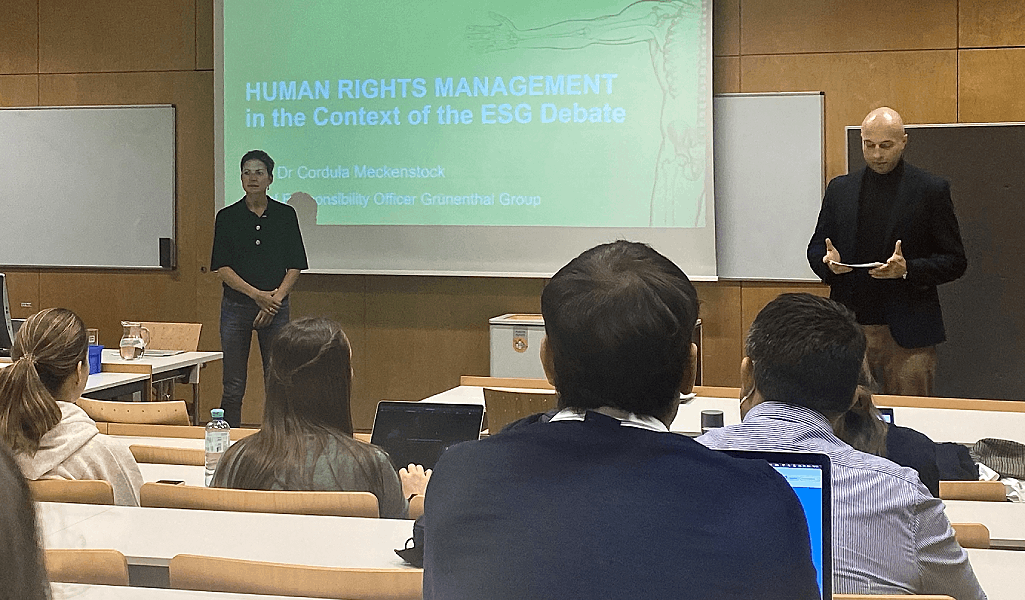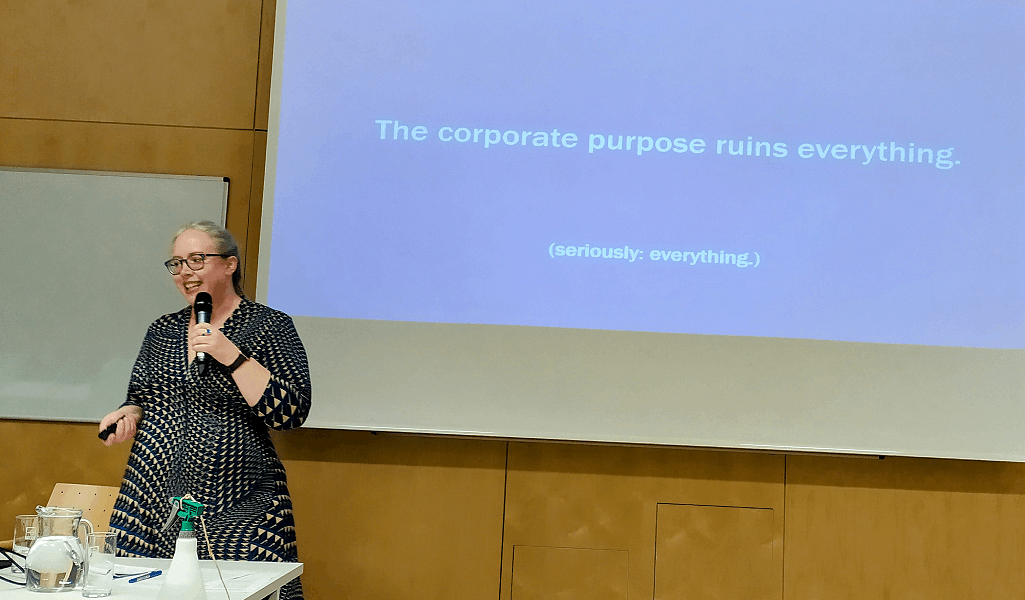As part of the “Responsible Management Lectures – Ideas for Better Business”, the Institute for Business Ethics and Sustainably Strategy (IBES) welcomed Tara van Ho, Senior Lecturer at the School of Law of the University of Essex at FHWien der WKW on 27.10.2022. One week prior – on 20.10.2022 – Cordula Meckenstock from the German family-owned pharmaceutical company Grünenthal was a guest speaker on the topic “Human Rights Management in the Environmental Social Governance (ESG) Debate”.
Cordula Meckenstock received her Doctor of Law with a focus on “Investment Protection Law and Human Rights Protection” from the University of Leipzig and is Chief Responsibility Officer (CRO) at Grünenthal. The German pharmaceutical company – with 4,500 employees in around 28 countries – places a special focus on transparency along the supply chain as well as ESG risk management – corporate responsibility in the areas of environment, social affairs and corporate governance.
ESG applied in practice
For the family-owned company, transparency, and responsible action – in addition to being a positive ethical differentiator – are becoming a relevant trust factor for all stakeholders involved. Therefore, Grünenthal’s internal corporate responsibility program does not simply aim to manage ESG risks, but to establish opportunities for positive impact. To this end, the program has been integrated into the corporate strategy using four modules:
- Corporate Business Units
- ethical framework
- ESG risk management
- corporate governance
Separate KPIs and targets have been defined for the business units and in addition a regular Materiality Analysis has been conducted, where stakeholder collaborations as well as impact factors are elicited and adjusted. Grünenthal has also installed an internal “Ethics HelpLine” with a “Whistle Blow Pipeline” that gives employees the opportunity to report conflicts of interest, cases of corruption or data privacy issues.
The “Compliance and Risk Management System” set up by Cordula Meckenstock then acts as the final point of contact for suppliers who represent a high ESG risk for the company and takes the final decision on possible cooperation with the stakeholders.
Social consequences of shareholder orientation
A week later, Tara van Ho delivered her “Reimagining the Corporate Purpose” lecture, which was both entertaining and thought-provoking. The Senior Lecturer at the School of Law at the University of Essex outlined the historical development and global spread of the concept of “shareholder primacy.” This sees the main purpose of companies as generating profits for their owners. Following on from this, the speaker used many examples to illustrate the problematic consequences of shareholder orientation for all areas of society – from the economy and innovation to the environment and health.
Reflection with stakeholders as a starting point
Based on her work on companies and human rights, Tara von Ho offered some stimulating ideas for further and new development of the purpose of companies in her “Responsible Management Lecture”:
- A necessary reflection on the expectations placed on companies.
- Companies should make stakeholders the starting point for their considerations.
The speaker appeals to companies for entering a dialogue with local communities in the vicinity of their business locations as early as possible. That way, their needs can be better understood in advance. Instead, all too often major decisions are only discussed internally within the company and the conversation is only sought-after problems such as human rights violations and the like have arisen.
The engaged and thoughtful questions from the audience at both talks demonstrated the relevance of the current discussions of corporate purpose, environment, social and governance … for Better Business.

